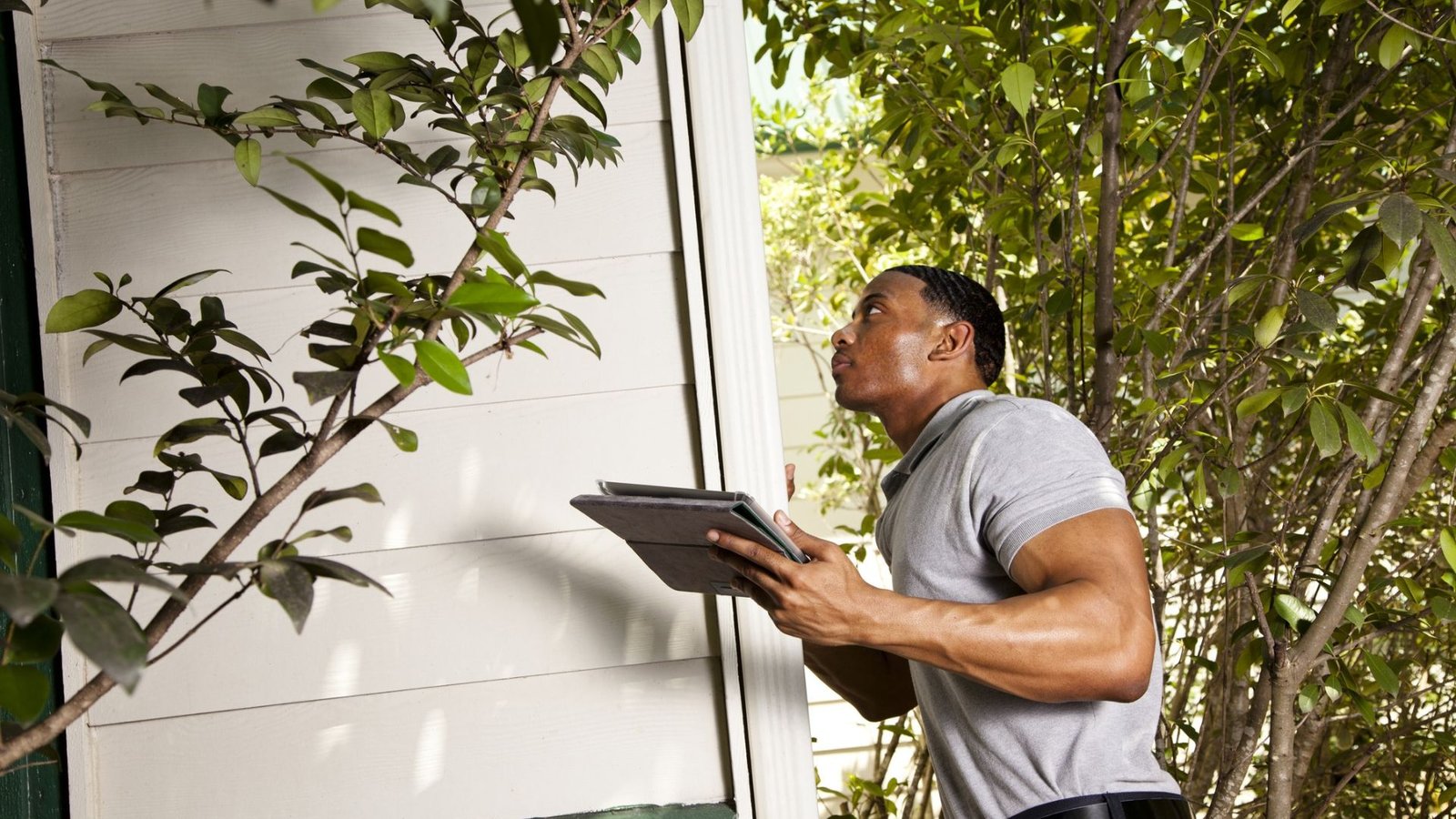Selling a home can be an exciting yet challenging experience. As a seller, you want to make sure your home is ready for buyers and stands out in the market. One of the most important steps to take before listing your home is preparing for a home inspection. A pre-inspection can help you identify and address potential issues before buyers see them. In this article, we’ll cover some essential home inspection tips for sellers to help ensure a smooth sale process.

Why Get a Pre-Listing Home Inspection?
A pre-listing home inspection is when a seller hires a professional inspector to evaluate the property before it’s listed on the market. While not required, it’s a smart move that can benefit you in several ways:
- Avoid Surprises: A pre-listing inspection helps uncover potential issues with the property. This allows you to fix problems before buyers find them.
- Price the Home Correctly: Knowing about any issues gives you a clearer idea of how to price your home, accounting for repairs that may be needed.
- Gain Buyer Confidence: Homes that have undergone an inspection are often viewed more favourably by buyers. It shows that you’re proactive and transparent about the condition of the property.
- Speed Up the Process: Fixing issues ahead of time can prevent delays in the closing process. Buyers will be more likely to move forward with a clean inspection report.
Now, let’s dive into some important tips to help you prepare for the inspection and ensure a successful sale.
1. Hire a Qualified Home Inspector
The first step is to hire a qualified, licensed home inspector. Not all inspectors are the same, so take the time to find one with a good reputation and experience. Ask for recommendations from your real estate agent or check online reviews. A skilled inspector will thoroughly examine the property and provide a detailed, unbiased report of any issues.
Before hiring, ask the inspector about their experience with pre-listing inspections. Make sure they are familiar with local building codes and common issues in your area. The right inspector will help you identify even small problems that could become big issues in the eyes of potential buyers.
2. Prepare Your Home for the Inspection
Just like a buyer will prepare for an inspection, you should also get your home ready for the process. A little preparation can go a long way in ensuring the inspection goes smoothly. Here are a few things to do:
Clear Access to Key Areas
Make sure the inspector has easy access to all parts of the home. This includes the attic, basement, crawl spaces, and garage. Remove any clutter blocking the entrance to these areas. It’s also a good idea to ensure all utilities are turned on, such as water, gas, and electricity, so the inspector can check all systems.
Fix Minor Issues Beforehand
Take care of any small repairs that could be easily overlooked but might raise questions during the inspection. These could include:
- Tighten loose door handles
- Replace missing grout or tiles in bathrooms or kitchens
- Fix leaky faucets or running toilets
- Replace worn-out weather stripping around windows and doors
- Replace light bulbs or non-working electrical outlets
These small fixes show the inspector and potential buyers that the home has been well-maintained.
Take Care of Outdoor Maintenance
The exterior of the home is just as important as the interior. Make sure the yard is tidy and any potential hazards are addressed. Clean gutters, repair any broken fences and ensure that the lawn is well-manicured. Trim trees and bushes that might be touching the roof or siding. This not only improves the home’s appearance but can also help prevent issues like clogged gutters or roof damage.
3. Know What Common Issues Inspectors Look For
It’s helpful to be aware of the most common issues that home inspectors look for so you can address them ahead of time. Here are a few typical areas of concern:
- Roofing: Inspectors will look for missing shingles, leaks, or damage to the roof. If your roof is old or damaged, it’s a good idea to get it repaired before listing.
- Plumbing: Leaks, clogged pipes, and outdated plumbing can be major red flags. Have your plumbing checked for leaks, water pressure, and potential issues with drains.
- Electrical System: Outdated wiring or faulty electrical systems are common problems. If you have old wiring or an outdated panel, it’s a good idea to get an electrician to inspect and upgrade it.
- HVAC System: A malfunctioning HVAC system can be a turn-off for buyers. Have your heating and cooling systems serviced and ensure they are working properly.
- Foundation and Structure: Foundation issues, such as cracks or shifting, can be expensive to fix. If you notice any cracks in the foundation or signs of settling, it’s worth consulting a professional before listing.
Being proactive and addressing these areas before the inspection can help you avoid surprises later on.
4. Be Transparent with Buyers
If the inspection reveals minor issues or areas of concern, don’t try to hide them. Be honest and transparent with potential buyers about the property’s condition. Buyers will appreciate your honesty and may be more willing to move forward with the deal. If you choose to make repairs, be sure to keep receipts or documents that show the work was done.
Transparency can also give you an edge over other homes for sale. Buyers are more likely to trust a seller who is upfront about the home’s condition. It can lead to a faster sale and possibly even a higher offer.
5. Budget for Possible Repairs
Once the home inspection is complete, there may be issues that need to be addressed. It’s a good idea to have a repair budget in mind. If there are significant issues that need to be fixed, you can choose to make the repairs yourself or negotiate with the buyer to lower the price.
Consider getting estimates for repairs before listing your home so you have a clear understanding of potential costs. This will help you make informed decisions if the inspection report reveals any major issues.
6. Stay Flexible During the Negotiation Process
Once the buyer’s inspection is complete, they may come back to you with requests for repairs or a price reduction. Be prepared for negotiation. If the buyer asks for repairs, you have several options:
- Make the Repairs: You can agree to fix the issues before the sale.
- Offer a Credit or Price Reduction: Instead of making the repairs yourself, you can offer the buyer a credit or reduce the asking price to cover the repair costs.
- Decline the Request: If the requested repairs are minor, you may choose to decline the request and leave the home as is. However, this may affect the buyer’s willingness to move forward with the sale.
Staying flexible and willing to negotiate can help you close the deal smoothly.
Conclusion
Preparing for a home inspection before listing your property can be a smart and beneficial step in the selling process. By addressing potential issues upfront, you can avoid surprises, price the home correctly, and gain buyer confidence. A pre-listing inspection allows you to fix problems early, which can help speed up the sale and increase the chances of a smooth transaction.
With the right preparation, you can ensure that your home is in top condition for buyers and help make the selling process a successful one. Follow these home inspection tips for sellers, and you’ll be on your way to a quicker, easier sale.




